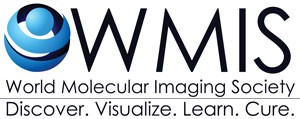Over the past several years new immunotherapies have been emerging. A rapidly emerging immunotherapy approach is called adoptive cell transfer (ACT): collecting and using patients’ own immune cells to treat their cancer. There are several types of ACT, but, thus far, the one that has advanced the furthest in clinical development is called chimeric antigen receptor (CAR) T cell therapy. This immunotherapy approach attempts to boost the natural ability of your T cells to fight cancer. T cells are a type of white blood cell and part of the immune system. Researchers collect and use a patient’s own immune cells to treat their cancer. They isolate the T cells that are most active against the patient’s cancer or modify the genes in them to make them better able to find and destroy your cancer cells. Researchers then grow large batches of these T cells in the lab to be injected back into the patient.
Engineering Robust T Cells for Cancer Immunotherapy
Yvonne Chen, Chemical & Biomedical Engineering, University of California Los Angeles, Los Angeles, California, USA
The immunotherapy that has advanced the furthest in clinical development is called CAR T cell therapy. Here Yvonne Chen discusses latest developments in engineering robust T cells for cancer immunotherapy.
Moving Car T Cell Therapy Forward: Cars and Armored Cars
Ranier Brentjens, Memorial Sloan Kettering Cancer Center, New York, New York, USA
Adoptive T cell therapies harness the power of a patient’s own immune system to effectively target and kill cancer cells. Chimeric antigen receptors (CAR) are engineered receptors. CAR T cell therapy involves ex-vivo modification of a patients T cell to recognize a tumor cell, cleaning and then injecting back into the patient to specifically target tumor antigens. This presentation discusses the latest developments in CAR T cell therapies.
PET-Imaging of Chimeric Antigen Receptor T Cells
David Huss, Discovery Research, Juno Therapeutics, Seattle Washington, USA
David Huss is employed by Juno Therapeutics and his lab is interested in taking lessons learned from hematology and chimeric antigen receptor (CAR) T cells and applying them into solid tumors. He will talk about PET Imaging of CAR T Cells.
First in human study of [18F]F-AraG, a PET tracer for monitoring anti-tumor immune response during cancer immunotherapy
Sanjiv Gambhir, Stanford University, Cellsight Technologies, California, USA
Immunotherapies are increasing as a mechanism for treating cancer and whether the immunotherapy be one of direct T cell origin such as the CAR T cell therapies, or dendritic cell based or peptide based, these all have in common that they affect T cells. It is very important to develop techniques that serially image T cells in a living subject, something that would be specific to T cells and allow serial imaging. This presentation discusses a very early pilot imaging study in humans with the tracer [18F]F-AraG.
